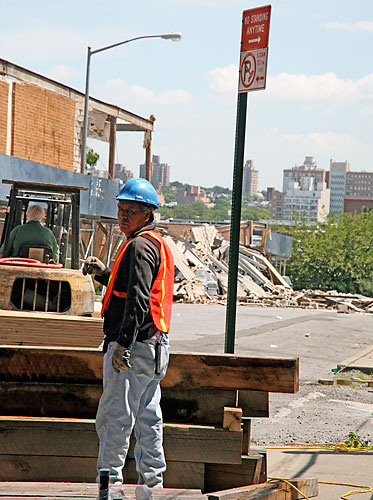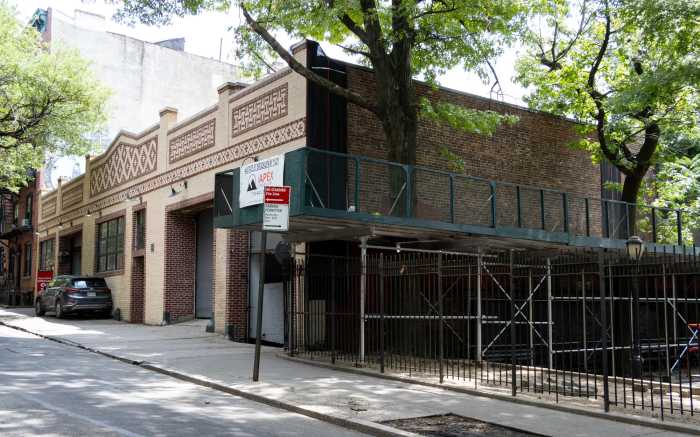A Smith Street warehouse, which had received numerous safety complaints and inspections this year, partially collapsed on Monday night, damaging seven cars and fulfilling a prophesy of a local blogger.
The Huntington Street side of the vacant garment factory caved in at 10 pm and quickly turned the vehicles into perfect candidates for the “Cash for Clunkers” program.
“An exterior wall and scaffolding collapsed onto the sidewalk and street. The building was unoccupied, and fortunately no one was injured,” said a report sent from the 76th Precinct.
On Wednesday, part of Huntington Street was still closed to assist the removal of debris and to secure the portions still standing.
The Department of Buildings said it has not determined the cause of the collapse, but stopped all demolition work at the Gowanus Canal-side site, which is being readied for a clean-up of the toxic brownfield beneath it.
The city also issued five violations to the contractor requiring him to erect a shed and other safety protections.
Embarrassingly, the Buildings Department had been monitoring the stalled demolition for months, making five inspections of the site between April and July. Each time, the investigator said it posed “no immediate threat.”
Yet in February, there were numerous complaints when the wrecking crew did most of its work, leaving a shell of a structure. At one point, the city stopped the razing.
The teetering structure worried neighbors, who met with the contractors at a Community Board 6 meeting this winter. Deceased blogger Bob Guskind presciently warned on his Gowanus Lounge Web site that the hollowed building posed a threat to public safety.
“This thing has wall collapse written all over it,” the late great journalist said. He urged, “Do not go near this thing.”
The owner, Henry Abadi, vacated the warehouse because it sits on land contaminated from defunct gas plants that once stood nearby. National Grid, the gas utility, is responsible for the underground clean-up at the warehouse as well as the neighboring site, known as the Public Place.
That property is owned by the city and a mixed-income village is planned.
Abadi’s attorney did not return calls for comment in time for The Brooklyn Paper’s ground-shaking online deadline.

























